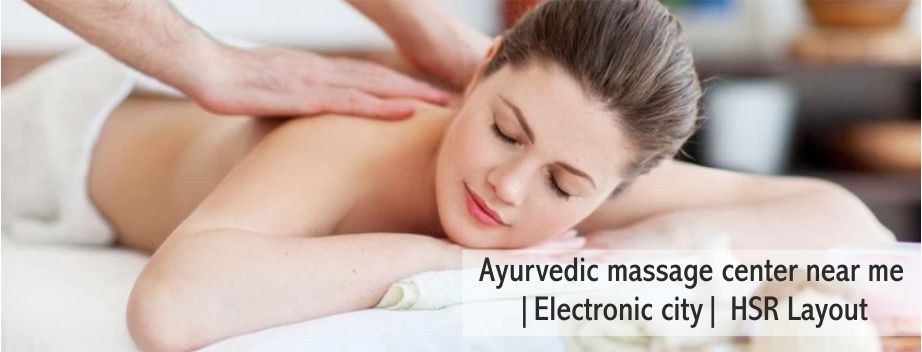Introduction In the hustle and bustle of our modern lives, the toll on mental health is undeniable. Stress, anxiety, and the weight of responsibilities can lead to a range of mental health challenges. However, amidst the chaos, there exists a soothing remedy that transcends the physical realm – massage therapy. In this comprehensive exploration, we will unravel the profound role that massage therapy plays in nurturing mental health. So, join us on this journey to discover the healing power of touch and the positive impact it can have on your mental well-being.
Understanding the Mind-Body Connection:
Before we delve into the therapeutic wonders of massage, let's first grasp the intricate relationship between our minds and bodies. The mind-body connection is a fundamental aspect of our overall well-being. When stressors accumulate, whether from work pressures, personal challenges, or societal demands, our bodies often bear the brunt of these burdens. This is where massage therapy steps in as a holistic approach, addressing both the physical and mental aspects of our being.
The Stress-Response Mechanism:
Stress triggers a cascade of physiological responses, releasing hormones like cortisol. Chronic exposure to elevated cortisol levels can contribute to a range of mental health issues, including anxiety and depression. Massage therapy, with its calming touch, has been shown to reduce cortisol levels, providing relief from the chronic stress that burdens the mind.
Neurotransmitters and Mood Regulation:
Neurotransmitters, the messengers of the brain, play a crucial role in regulating mood. Serotonin, dopamine, and endorphins are neurotransmitters associated with feelings of happiness and well-being. Massage has been found to increase serotonin and dopamine levels while reducing cortisol, creating a neurochemical cocktail that fosters a positive mental state.
Massage Therapy for Stress and Anxiety:
.png)
The Magic of Swedish Massage:
Let's start our journey with the gentle cadence of Swedish massage. Characterized by long, flowing strokes and kneading techniques, this form of massage is a melody that harmonizes the body and mind. The soothing motions ease muscle tension, releasing the grip of stress and paving the way for a calmer mental state.
Aromatherapy's Fragrant Embrace
Aromatherapy massage adds an extra layer of enchantment to the experience. By incorporating essential oils known for their calming properties, such as lavender and chamomile, the therapeutic benefits extend beyond touch. The aromatic elixirs dance through the air, creating an ambiance that transcends the ordinary, providing a sensory retreat for the mind.
Deep Tissue: Unraveling Tension Knots:
For those carrying the weight of chronic tension, deep tissue massage is a powerful ally. By targeting the deeper layers of muscles, this modality unravels knots and releases pent-up stress. While the pressure may be more intense, the relief is profound, offering a sense of liberation for both body and mind.
Massage Therapy and Depression:

Elevating Mood with Endorphins:
Depression often comes with a persistent cloud of low mood. Massage therapy, with its knack for triggering the release of endorphins, acts as a natural mood enhancer. These endorphins, often dubbed the "feel-good" hormones, create a sense of euphoria and act as a counterforce to the dark clouds of depression.
Promoting Relaxation and Sleep Quality:
Sleep disturbances are a common companion to depression. Massage therapy, through its relaxation-inducing properties, contributes to improved sleep quality. As the mind unwinds on the massage table, the benefits transcend the session, fostering better sleep patterns and, consequently, a more stable mood.
Massage Therapy for PTSD and Trauma:
.png
)
Gentle Healing Touch:
Post-traumatic stress disorder (PTSD) and trauma survivors often carry the weight of their experiences in both body and mind. Massage therapy offers a gentle, non-intrusive approach to healing. The nurturing touch can provide a safe space for individuals to reconnect with their bodies, fostering a sense of security and grounding.
Reducing Hyperarousal:
Trauma survivors may experience hyperarousal, a state of heightened sensitivity to stimuli. Massage therapy has been found to reduce the sympathetic nervous system's activity, promoting a shift from the fight-or-flight response to the rest-and-digest state. This shift can be instrumental in restoring a sense of calm and control.
Massage Therapy in Addiction Recovery:
.png
)
Easing Withdrawal Symptoms:
The journey of addiction recovery often involves grappling with uncomfortable withdrawal symptoms. Massage therapy can play a supportive role by alleviating physical discomfort, such as muscle pain and tension, associated with withdrawal. This physical relief can contribute to a more stable mental state during the recovery process.
Stress Reduction and Relapse Prevention:
Stress is a common trigger for relapse in individuals recovering from addiction. Massage therapy's ability to reduce stress hormones, coupled with its positive impact on mood, provides a valuable tool in preventing relapse. It offers a holistic approach to recovery by addressing both the physical and mental aspects of addiction.
Choosing the Right Massage Therapist:
.png
)
The effectiveness of massage therapy hinges not only on the modality chosen but also on the expertise of the massage therapist. Here are key considerations when selecting a massage therapist for mental health support:
Certification and Training:
Ensure that the massage therapist is certified and has received proper training in the specific modalities relevant to mental health support.
Communication Skills:
A crucial aspect of a positive massage therapy experience is effective communication between the therapist and the client. The therapist should be attentive to the client's needs and preferences, fostering an environment of trust and comfort.
Empathy and Sensitivity:
Mental health challenges require a compassionate approach. A skilled massage therapist should be empathetic, understanding, and sensitive to the unique needs of each individual.
Client-Centered Approach:
A client-centered approach involves tailoring the massage session to the client's specific concerns and preferences. This personalized touch enhances the therapeutic benefits and contributes to a more positive mental health outcome.
The Role of Massage in Overall Well-Being:
Enhancing Mindfulness:
Mindfulness, the practice of being present in the moment, is a key component of mental well-being. Massage therapy inherently encourages mindfulness by creating a space for individuals to focus on the sensations and experiences of the present, momentarily detaching from stressors and worries.
Promoting Body Positivity:
In a world that often scrutinizes our bodies, massage therapy promotes a positive relationship with one's own body. The non-judgmental touch of a skilled therapist fosters a sense of acceptance and appreciation for the body, contributing to improved self-esteem and overall well-being.
Building Resilience:
Regular massage therapy can contribute to the development of resilience, the ability to bounce back from life's challenges. By providing a consistent source of relaxation and stress relief, massage becomes a proactive measure in cultivating mental resilience.
Conclusion
In the grand tapestry of mental health care, massage therapy emerges as a vibrant thread, weaving through the physical and mental realms with its healing touch. The benefits extend far beyond the massage table, influencing neurotransmitters, reducing stress hormones, and fostering an environment conducive to mental well-being.
As we navigate the complexities of life, let us not overlook the simplicity of touch as a powerful tool in our mental health toolkit. Whether you seek relief from the clutches of stress, the shadows of depression, or the echoes of trauma, consider the transformative potential of massage therapy. It is a holistic journey that beckons you to reconnect with your body, nurture your mind, and embrace the profound interplay between the two.
In the symphony of self-care, let the soothing notes of massage therapy resonate, guiding you towards a harmonious balance of mental health and well-being. Take a step towards healing hands, where every touch is an invitation to rediscover the strength, resilience, and serenity within you.




